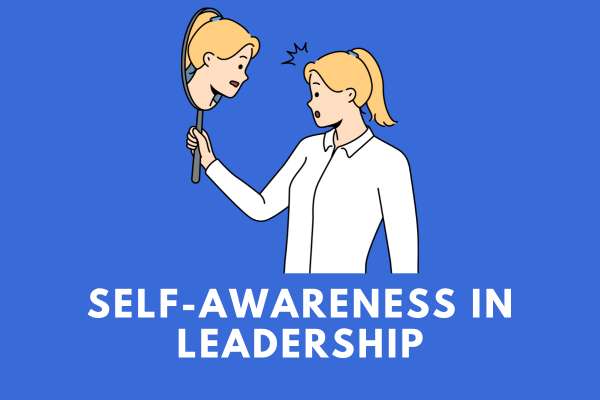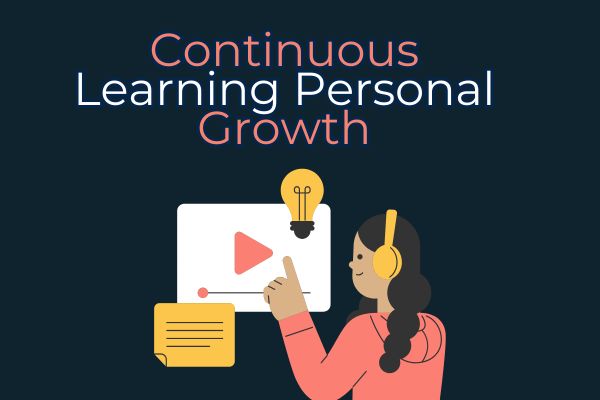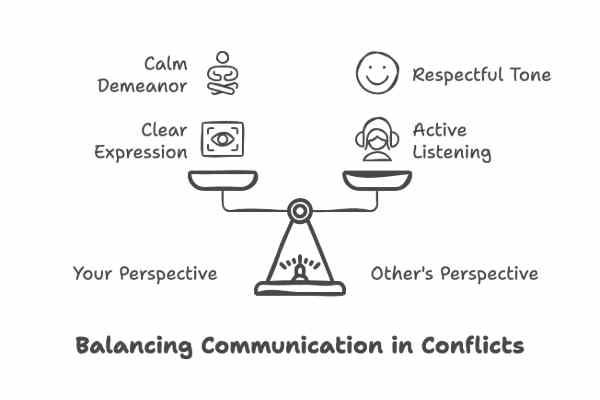Leadership is more than managing people or achieving targets; it’s about inspiring, influencing, and guiding others toward a shared vision. The cornerstone of effective leadership lies in self-awareness—a deep understanding of your strengths, weaknesses, emotions, and values. By cultivating self-awareness, leaders can create meaningful connections, make informed decisions, and drive positive change.
This article explores how self-awareness impacts leadership, the steps to develop it, and practical strategies to harness its power in professional and personal contexts.
Understanding Self-Awareness
What is Self-Awareness?
Self-awareness refers to the ability to recognize and understand your emotions, thoughts, and behaviors. It involves two dimensions:
- Internal Self-Awareness: Knowing your values, passions, aspirations, strengths, and weaknesses.
- External Self-Awareness: Understanding how others perceive you, which influences your ability to empathize and build relationships.
The Role of Self-Awareness in Leadership
Leaders who are self-aware possess the emotional intelligence necessary to inspire trust and respect. They can:
- Respond, rather than react, to challenges.
- Communicate effectively.
- Adapt to different personalities and situations.
- Foster collaboration and innovation.
The Science Behind Self-Awareness
Research in psychology and neuroscience shows that self-awareness enhances decision-making, emotional regulation, and resilience. The brain’s prefrontal cortex, responsible for self-reflection, helps leaders evaluate their actions and align them with their goals.
Benefits of Self-Awareness in Leadership
1. Improved Decision-Making
Self-aware leaders understand their biases and blind spots, enabling them to make objective decisions. They weigh options with clarity and consider diverse perspectives before acting.
2. Enhanced Emotional Intelligence
Emotional intelligence, which includes self-awareness, empathy, and social skills, is critical for effective leadership. Self-aware leaders can regulate their emotions, preventing impulsive actions that may harm their teams.
3. Better Relationships
Self-awareness helps leaders recognize the needs and motivations of others. By being attuned to their team’s emotions, they can build trust, foster collaboration, and create a positive work culture.
4. Increased Resilience
Leadership comes with challenges, from managing conflicts to navigating uncertainty. Self-aware leaders are more resilient, as they can assess their emotions and reframe setbacks as opportunities for growth.
5. Authenticity and Credibility
Leaders who are true to their values and transparent in their actions inspire confidence. Self-awareness allows them to align their behavior with their principles, fostering authenticity.
Fancy Coupons? Check Great Clips Coupons
Barriers to Self-Awareness
While self-awareness is vital, several obstacles can hinder its development:
1. Ego and Overconfidence
A leader’s ego can blind them to their flaws. Overconfidence in their abilities may prevent them from seeking feedback or acknowledging mistakes.
2. Fear of Feedback
Many leaders avoid feedback due to fear of criticism. However, ignoring external perspectives limits growth and creates blind spots.
3. Habitual Behaviors
Unexamined habits and routines can lead to autopilot behavior, where leaders act without considering their impact on others.
4. Lack of Reflection
In fast-paced environments, leaders may neglect self-reflection, missing opportunities to assess their decisions and emotions.
Also check: How to Discover Your True Purpose
Steps to Cultivate Self-Awareness
1. Practice Self-Reflection
Self-reflection involves examining your emotions, thoughts, and behaviors regularly. Set aside time to ask yourself:
- What are my strengths and weaknesses?
- How did I handle challenges today?
- Are my actions aligned with my values?
2. Seek Feedback
Feedback from colleagues, mentors, and peers offers valuable insights into how others perceive you. Use 360-degree feedback tools or one-on-one conversations to gather input.
3. Develop Emotional Intelligence
Building emotional intelligence involves understanding and managing your emotions. Practice mindfulness, active listening, and empathy to strengthen your interpersonal skills.
4. Use Assessments
Personality assessments like the Myers-Briggs Type Indicator (MBTI) or Emotional Quotient Inventory (EQ-i) can help you identify your traits and areas for growth.
5. Keep a Journal
Journaling allows you to track your progress and recognize patterns in your behavior. Reflect on significant experiences, emotions, and decisions.
6. Embrace Feedback Loops
Create a continuous feedback loop by regularly checking in with your team and making adjustments based on their responses.
Practical Strategies to Unlock Leadership Potential
1. Align Actions with Values
Identify your core values and ensure your decisions and behaviors reflect them. This alignment fosters authenticity and trust among your team.
2. Develop a Growth Mindset
Adopt a mindset that embraces challenges as opportunities for learning. View feedback and setbacks as tools for personal and professional development.
3. Build Emotional Agility
Emotional agility is the ability to navigate emotions effectively. Practice pausing before responding to triggers, allowing you to choose a thoughtful course of action.
4. Create an Open Feedback Culture
Encourage a culture where feedback is valued and openly exchanged. Lead by example by welcoming constructive criticism and acting on it.
5. Practice Mindfulness
Mindfulness helps leaders stay present and aware of their emotions. Techniques like meditation, deep breathing, and mindfulness exercises can enhance focus and clarity.
6. Leverage Strengths and Address Weaknesses
Acknowledge your strengths and use them strategically. Simultaneously, address your weaknesses by seeking support, learning new skills, or delegating tasks.
Self-Awareness and Team Dynamics
1. Empowering Team Members
Self-aware leaders recognize the unique strengths and needs of their team members. By delegating tasks effectively and offering support, they empower individuals to thrive.
2. Resolving Conflicts
Understanding your triggers and emotional responses enables you to manage conflicts constructively. Address issues with empathy and focus on solutions.
3. Enhancing Communication
Self-awareness improves communication by helping leaders express themselves clearly and listen actively. They can adapt their style to suit different personalities and situations.
4. Fostering Inclusion
Leaders who are aware of their biases can create inclusive environments where diverse perspectives are valued. This diversity drives innovation and collaboration.
Case Studies of Self-Aware Leadership
1. Satya Nadella (CEO, Microsoft)
Satya Nadella transformed Microsoft’s culture by prioritizing empathy and self-awareness. He shifted the company from a “know-it-all” mindset to a “learn-it-all” approach, fostering innovation and collaboration.
2. Indra Nooyi (Former CEO, PepsiCo)
Indra Nooyi’s self-awareness allowed her to lead with authenticity and humility. By understanding her values and connecting with employees, she built a purpose-driven organization.
3. Howard Schultz (Former CEO, Starbucks)
Howard Schultz emphasized the importance of emotional intelligence in leadership. His self-awareness enabled him to create a company culture centered on respect and connection.
Measuring Your Self-Awareness Progress
1. Set Goals
Identify specific areas of self-awareness to improve, such as emotional regulation or decision-making.
2. Track Behavioral Changes
Monitor how your actions align with your goals over time. Look for changes in your interactions, communication, and decision-making.
3. Gather Ongoing Feedback
Continue seeking feedback from colleagues and team members to gauge how your leadership style evolves.
4. Reflect on Outcomes
Assess how self-awareness impacts your leadership outcomes, such as team morale, performance, and organizational success.
Challenges in Maintaining Self-Awareness
1. Staying Consistent
Self-awareness is an ongoing process. Leaders must consistently practice reflection, feedback, and mindfulness to sustain it.
2. Balancing Confidence and Humility
While confidence is essential for leadership, it must be balanced with humility. Self-aware leaders know their worth without overshadowing others.
3. Overcoming Resistance to Change
Leaders may face resistance when trying to change their behavior or organizational culture. Perseverance and communication are key to overcoming these challenges.
The Future of Leadership and Self-Awareness
As workplaces evolve, self-awareness will remain a critical skill for leaders. In an era of hybrid work environments, rapid technological advancements, and diverse teams, self-aware leaders can navigate complexity with empathy and agility.
Conclusion
Unlocking your leadership potential through self-awareness is not a one-time achievement but a lifelong journey. By understanding your emotions, values, and impact on others, you can lead with authenticity, inspire trust, and drive meaningful change.
Self-aware leadership transforms not only organizations but also individuals, fostering growth, resilience, and purpose. Start your journey today by reflecting on your strengths, seeking feedback, and embracing a growth mindset—because the best leaders are those who truly know themselves.






